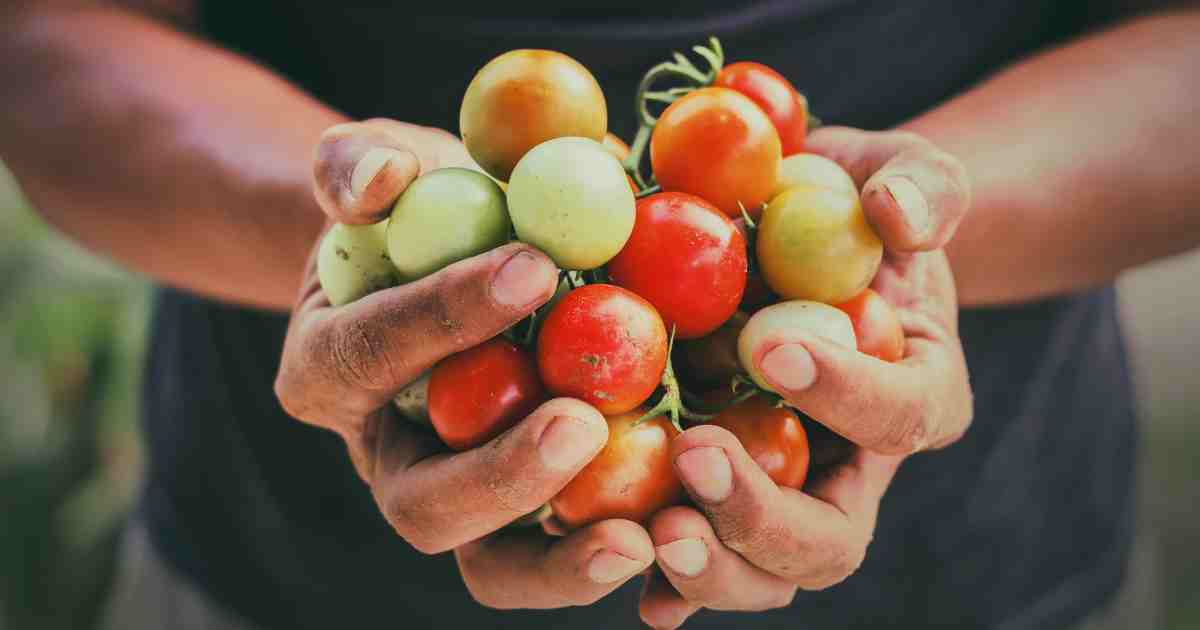Dupe Killa-Kafidipe, founder and CEO of Platinum Fisheries
Dupe Killa-Kafidipe founded Platinum Fisheries, a fish farming business, in Nigeria in 2016. The company produces catfish, tilapia, mackerel, and snails for sale to the domestic market. In an interview with Jeanette Clark, Killa-Kafidipe discussed the journey of building her business, growth through vertical integration, and the thinking behind targeting business-to-business clients.
Dupe Killa-Kafidipe was raised in a family with a fishing background. Reflecting on her journey to establish her fish production company, Platinum Fisheries, in 2016, two pivotal experiences stand out.
As a child, attending fishing festivals with her extended family, Killa-Kafidipe saw reductions in the catches and size of the fish. This raised her concern about the dwindling state of water bodies. “I started to realise that we were ravaging the fragile water bodies around us,” she recalls.
She also remembers the difficulties her family faced during Nigeria’s 1982 recession, experiencing the stark reality of hunger. She refers to it as an “indignity” that left a lasting impression.
These experiences – witnessing a declining natural resource and understanding the reality of not knowing where the next meal would come from – ignited her passion for ethical and sustainable seafood production practices, which forms the foundation of Platinum Fisheries.
From banking analyst to fish farmer
Dupe Killa-Kafidipe’s early challenges fueled her ambitious career path and ongoing education. She held various positions along the way, including as an analyst at United Bank of Africa, a consultant for Murtala Muhammed International Airport in Lagos, and a role at Capital Express, a Nigerian financial services firm. Her academic credentials span Harvard Business School, IESE New York, and China Europe International Business School.
In 2014, while serving as the head of strategy at Capital Express, Killa-Kafidipe started her research to establish a fish farming company. She analysed all the essential requirements for the venture’s success, such as suitable premises, optimal breeding stock, and appropriate fish feed.
By 2015, she had a detailed business plan and sought investment. Yet, the terms proposed by potential investors were unsuitable for a startup. Killa-Kafidipe remembers, “The terms were just not wholesome. There was no way that an evolving business could take on that kind of interest burden … [within] the [specified] payback period… The business would fail.”
Undeterred, Killa-Kafidipe used her savings to start Platinum Fisheries.
Securing land
Killa-Kafidipe prioritised finding the perfect location for Platinum Fisheries, carrying out soil and water quality tests on various sites. “We were trying to mimic nature, so there are certain aspects that would make the livestock (fish) flourish and make production cycles shorter. We looked and looked.” A wetland area, for instance, would simplify the creation of initial ponds due to easier water access, reducing borehole requirements.
In 2016, she found two hectares of land in Lekki, on the outskirts of Lagos, and decided to purchase the land instead of leasing it. “I already had big plans, and I am grateful that I had that foresight and could buy it outright at the time, as it is much more valuable now.”
Once the land was secured, Platinum Fisheries was registered and production started with six ponds. Killa-Kafidipe continued working part-time in the corporate sector until her final resignation in 2018.
Ramping up production
In the beginning, Platinum Fisheries sourced fish seed (fertilised eggs) or fry (young fish that have just hatched) from third parties for rearing in its ponds. The team often journeyed as far as Kwara State, a six-hour one-way trip, to acquire quality seedlings. Killa-Kafidipe remembers the strenuous early morning trips in temperature-controlled trucks, followed by careful monitoring to prevent complications or fatalities during transport back to Lagos.
Recruiting suitable staff also presented a challenge, as local scepticism towards fish farming in favour of traditional fishing prevailed. Killa-Kafidipe had to debunk these misconceptions. In its inaugural year, Platinum Fisheries had a small workforce – just the founder and two permanent staff, along with three part-time employees. They grappled with varying conditions in the ponds, managing elements like salinity, pH levels, and water flow.
Despite these hurdles, the company completed its first production cycle by the end of 2016, harvesting 5,000kg of catfish – a significant accomplishment for the compact team. This initial harvest was directly sold to consumers, who provided positive feedback and expressed interest in more varieties beyond catfish.
The favourable responses from direct consumers were encouraging but Killa-Kafidipe realised it would be more profitable to produce and sell in large quantities to business customers.
Targeting the B2B market
Killa-Kafidipe adopted a conservative approach, gradually introducing business-to-business (B2B) clients which in turn sold the fish at public seafood markets or supply factories making products like packaged frozen or grilled fish.
Mindful of Platinum Fisheries’ limited production capacity of about five tonnes per cycle at the time, the company wanted to avoid overcommitting. To manage expectations, it never agreed to supply more than a quarter of any single B2B client’s total demand. This strategy fostered a diverse customer base while the company expanded.
In 2018, the product range broadened to include tilapia and mackerel. Although a research and development study on prawn production was carried out, the decision to include prawns in the company’s portfolio was deferred.
In early 2019, Killa-Kafidipe opted to target the hospitality sector as a direct supplier. When she learned that the Marriott hotel group intended to establish a presence in Lagos, she seized the chance to arrange a meeting with its procurement manager.
Emphasising Platinum Fisheries’ local and sustainable methodology, she used this as a unique selling proposition to underscore the hotel’s sustainability commitment. Her strategy paid off, and Marriott became the company’s first major hotel client. Today, Platinum Fisheries counts Lagos Continental Hotel, the Harvest restaurant, and three Farm City branches in Lagos among its regular hospitality clients.
Dupe Killa-Kafidipe talking to staff at Platinum Fisheries’ production facility.
Killa-Kafidipe believes Platinum Fisheries has only just begun to tap into the significant local demand for fish products. “There are 200 million Nigerians that need to be fed [and] we currently import 85% of our seafood needs,” she says.
The B2B market demonstrates significant growth potential. A recent company survey revealed that 25 clients in this category require around 10 tonnes per week. The advantage of selling to B2B clients comes from their advance payments, ensuring stable cash flow for the company.
Platinum Fisheries is also considering a return to business-to-consumer sales, intending to introduce branded products. Driven by the potential for higher margins on some of its processed products, this move opens up an additional avenue for growth and profitability.
Diversification and self-sufficiency
In the same year, Platinum Fisheries extended its operations by commencing with the light processing, grilling, and packaging of its products.
It also established a hatchery, eliminating the need to rely on external suppliers for seed stock. With a surging demand that outpaced supply, many other fish farms sought to acquire seedlings from Platinum Fisheries, with some needing as many as 40,000 at a time.
Currently, Platinum Fisheries specialises in breeding catfish and tilapia, producing up to five million seedlings per month. While it uses a portion for its own production, it sells the surplus to meet the increasing market demand.
The company runs a free training programme, inviting interns to learn about the business and gain hands-on experience on the farm. This initiative not only raises awareness about sustainable fish production but also bolsters the company’s production teams with additional manpower.
Feed mill to curb production costs
In 2022, Platinum Fisheries took a significant step to further reduce production expenses by adding a feed mill to its operations. The mill produces fish feed in-house, using maize and other inputs resources like oil and fish meal.
“This is the most expensive component of fish farming, the feed,” says Killa-Kafidipe. The mill amalgamates, crushes, mixes, and pelletises the feed to meet the company’s specific needs. A specialised drying process makes the feed float, making it more edible and reducing waste.
Currently operating at 250kg per hour, the mill only caters for the company’s internal needs. This year, Platinum Fisheries plans to install two additional lines, increasing the capacity by a further 1,000kg per hour.
Exports for the future
At present, the domestic market keeps the company occupied, although two export consignments have been conducted as market trials.
When the time is right, export will become a consideration, says Killa-Kafidipe, especially due to the foreign currency benefit that it brings.
“Once we reach 50% of our capacity, 250 tonnes per quarter, then we will produce for export as well,” she says.
Platinum Fisheries CEO Dupe Killa-Kafidipe’s contact information
Contact details are only visible to our Monthly/Annual subscribers. Subscribe here.





















Discussion about this post